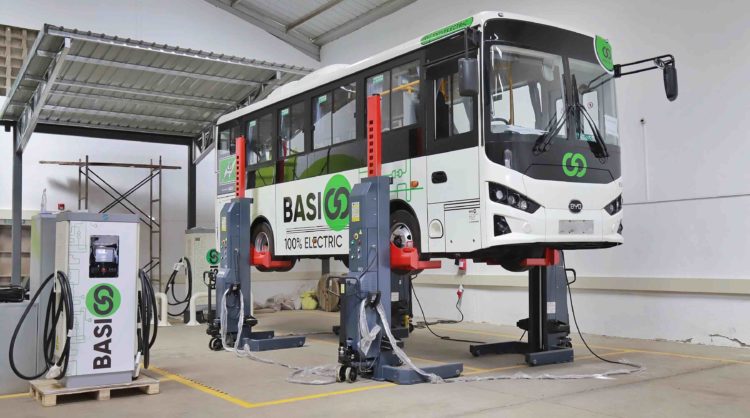BasiGo, an e-bus company, has launched a charging station in Nairobi, the first to do so under the new e-mobility tariff.
As more people in Nairobi use public transportation, BasiGo is bringing electric mobility to them.
One of the main factors influencing consumers’ decisions to transition to electric vehicles is the accessibility of charging stations.
For its fleet of electric buses, BasiGo has now opened the country’s first fast-charging station that is accessible to the general public.
The facility, which is the first to be connected to the country’s e-mobility tariff, is situated in Nairobi’s Buru Buru neighborhood and was approved by the Energy and Petroleum Regulatory Authority (EPRA) in 2023.
With the opening of this additional station, BasiGo is currently in possession of three charging stations that can together recharge more than 20 electric buses. With the opening of this most recent station, OMA Sacco and Embassava Sacco’s electric buses will have a dedicated charging station.
Utilizing the abundance of renewable energy accessible at night in Kenya, the tariffs provide reasonably priced electricity for charging electric vehicles. 90% of the electricity provided to the grid during the last three years has come from renewable sources such as hydro, geothermal, solar, and wind energy.
BasiGo CEO Jit Bhattacharya stated: “We can invest in infrastructure like this charging station and enable the rapid growth of the electric vehicle industry in Kenya thanks to the support of Kenya Power in establishing the E-mobility tariff.”
The station can currently charge six buses at once, but by year’s end, it will be modified to support up to 25 vehicles.
By the end of 2023, BasiGo intends to make its charging stations available to the general public for the purpose of recharging electric vehicles and trucks.
Read more on Tech Gist Africa:
BuuPass, a B2B2C platform for managing buses in Kenya, has secured $1.3 million in pre-seed funding
eWAKA, a Kenyan mobility startup, has received $540,000 in funding














